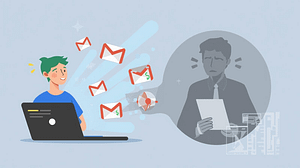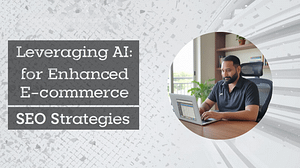AI privacy setting defaults are at the center of digital privacy debates in 2025, as everyday users and organizations increasingly rely on generative AI platforms for sensitive work and personal conversations.
With OpenAI (ChatGPT), Anthropic (Claude), and Google (Gemini/Bard) now leading the market, the baseline for how personal data is collected, retained, and used for AI model improvement varies widely.
Understanding these AI Data privacy setting defaults and learning to take control is crucial for anyone concerned about data security, compliance, or digital trust.
Understanding AI Privacy Setting Defaults Today
AI privacy setting defaults determine how your data is collected and used as soon as you sign up or start chatting often without extra prompts or warnings.
What are privacy setting defaults?
Privacy setting defaults are the built-in, pre-configured options that decide whether your AI conversations are saved, reviewed by humans, or used to train future models.
Recent research shows 57% of global users agree AI poses a significant threat to privacy, but many are unaware of how much data is collected automatically.
Why do differences between AI vendors matter?
Differences in AI privacy setting defaults impact your data’s safety, legal risk, and even the responses you receive.
One of the biggest trends shaping data privacy in 2025 is the accelerating convergence of AI governance and privacy compliance. says Ryan Johnson, Chief Privacy Officer at The Technology Law Group.
Choosing a compliant platform or at least knowing how to take control as a user—protects your business, your employees, and your personal information.
AI Data Privacy Best Practices Secure Your Conversations!
OpenAI Privacy Setting Defaults Explained
By default, OpenAI ChatGPT saves all prompts, chat responses, and files for future model training—unless you manually disable chat history.
How does ChatGPT handle user data by default?
- All user content, including chat logs and uploaded files, is saved and eligible for use in training unless chat history is turned off.
- Data may be reviewed by humans to improve AI accuracy, moderate harmful content, and resolve bugs.
- Without user intervention, data is stored indefinitely, which can conflict with stringent international privacy laws like the GDPR.
What opt-out options exist for OpenAI users?
- Users must actively disable chat history to prevent data from being stored or used in training.
- Even after disabling, some data may be kept for a short time for security or auditing needs.
- OpenAI’s privacy documentation and settings dashboard (updated mid-2025) provide step-by-step directions—but transparency and retention settings lag behind enterprise standards.
Anthropic’s Claude Privacy Defaults in 2025
Anthropic default in 2025 is opt-in to model training and a five-year chat log retention unless you proactively opt out.

How did Anthropic’s privacy policy change in 2025?
- On September 28, 2025, Anthropic shifted from a deletion-by-default model to retaining conversation logs for up to five years for consumer users (Claude Free, Pro, Max), with conversations used for model training unless users opt out.
- A new, prominent accept/toggle screen appears on login or sign-up, defaulting to data share: on making informed opt-out action the user’s responsibility.
- Enterprise and API customers enjoy stricter, contract-level privacy and are excluded from the default opt-in regime.
How to manage data sharing with Claude?
- Users can opt out via Privacy Settings anytime, but this only protects new conversations; data already used for model training cannot be recalled.
- Skipping the data share toggle counts as consent under Anthropic design an issue some privacy watchdogs warn may violate “true consent” requirements.
Google Gemini/Bard Privacy Setting Defaults Compared
Google Gemini and Bard platforms save user chats for model improvement by default, with an 18-month retention period adjustable by the user, but with key caveats”.
What is Google’s approach to AI chat privacy and retention?
- By default, Google saves Gemini/Bard conversations for 18 months, but users can reduce this to 3 or 36 months, or completely disable history in settings.
- Even when history is “off,” chats may be stored for up to 72 hours and subject to human review for abuse and bug-fixing purposes.
- Data policies are linked to a user’s Google Account and sync across devices, so “off” settings must be managed per-app, per-device.
How do privacy override risks affect Gemini/Bard users?
- New features may request broader permissions or silently re-enable data collection unless users closely review updated prompts and settings.
- Granting Gemini access to phone, messages, or third-party apps (like WhatsApp) may bypass earlier privacy choices if not reviewed with every major update.
What’s the biggest difference between these platforms?
- OpenAI and Google default to data collection unless users disable chat history, while Anthropic defaults to opt-in for consumer users after September 2025.
- Anthropic’s retention period (five years) is the longest for consumer users who do not opt out.
- Opt-out and granular controls are available on all three platforms—but require proactive management by the user.
What steps should users take for maximum privacy?
- Immediately review and adjust chat/data history settings after each product update or policy change.
- Opt out of model training/data sharing if available and desired.
- Monitor permissions for cross-app access, especially on mobile devices.
- For sensitive work, use enterprise tools or privacy-enhanced plans with stricter contractual protections.
- Audit data export and deletion options regularly, and make use of the strongest available anonymization controls.
AI Privacy Tools and Resources
| Resource Name | Link |
|---|---|
| Protecto AI | protecto.ai |
| Private AI | private-ai.com |
| Securiti AI | securiti.ai |
| Privacy Tools Guide | privacytools.io |
| Electronic Frontier Foundation | eff.org/issues/privacy |
| MIT AI Data Privacy Guidelines | MIT Sloan EdTech |
| IBM AI Privacy Insights | ibm.com/think/insights/ai-privacy |
| FTC AI Privacy Guidelines | FTC AI Policy |
| TrustArc AI Regulations | trustarc.com/ai-regulations |
| Brookings AI Privacy Report | Brookings AI Privacy |
| Qualys AI Security | Qualys AI Blog |
| Secure Privacy | secureprivacy.ai |
Protecting Your Data Across GenAI Platforms
Privacy setting defaults differ widely among OpenAI, Anthropic, and Google, and can determine whether your AI chats become part of a training dataset or are viewed by human reviewers. By understanding the latest privacy defaults in 2025, actively managing your opt-out settings, and choosing enterprise-level offerings when handling sensitive tasks, you can bring your AI data use into compliance and safeguard your organization’s or personal information.
Stay alert to policy updates, and demand greater transparency and choice from every AI vendor you trust.







